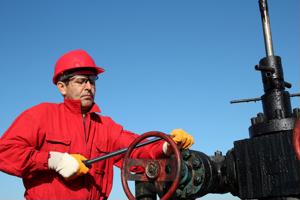
Petrol at $2 a litre in Victoria, and much higher in other parts of Australia, is alarming to industry and individuals alike. Small and medium sized businesses' understanding of why petrol prices are rising is valuable for effective budgeting and planning.
What factors into petrol price changes?
The classic supply and demand cycles push wholesale oil prices up and pull commerce and travel activity down.
Over the past two years, fluctuations in petrol prices can be attributed to global factors such as COVID-19, large scale natural disasters and trade embargoes.
For example, when countries implemented lockdowns to combat the spread of the coronavirus, demand from industry and consumers for oil created a glut of supply that led to an explosion in demand for oil containment. Countries like Australia weren't able to take on more oil supply and the unused resource languished.
The drastic reduction in demand impacted the entire oil and gas supply chain, from the production and extraction of crude oil, to the transportation and refinement of oil into petrol. As economies reopened, the cost of supplying oil was higher than during the pandemic. The Australasian Convenience and Petroleum Marketers Association reported that in 2021 second-quarter wholesale oil prices increased 96% compared to those in April 2020.
The coronavirus is still impacting the price of petrol. Globally, there is a dire lack of workers along the entire oil and gas supply chain. According to a study conducted by Oilandgasjobsearch.com and Brunel, the pandemic cost 40% of energy workers their jobs. Ramping back up takes time.
Factors unique to Australia that contribute to higher petrol prices
Australia relies heavily on imports to fuel our industries and cars, and we only have four refineries. According to Reuters reporting, all facilities are in need of expensive upgrades and the oldest facility, Exxon's Altona refinery in Victoria, could close down unless the government intervenes.
What steps should small businesses take when petrol prices are high?
The first thing is to review your costs of production and identify where you may be impacted by higher petrol prices. If you're a manufacturer, how will higher petrol prices in Australia affect your cost of goods sold? If your service requires your customers to drive to it, you may want to find other ways for loyal customers to access your services until petrol prices return to normal levels.
WMC Accounting specialises in assisting small and medium sized companies with accounting, finance and business management for long-term growth and prosperity. Contact us today to learn more about how we can help.



